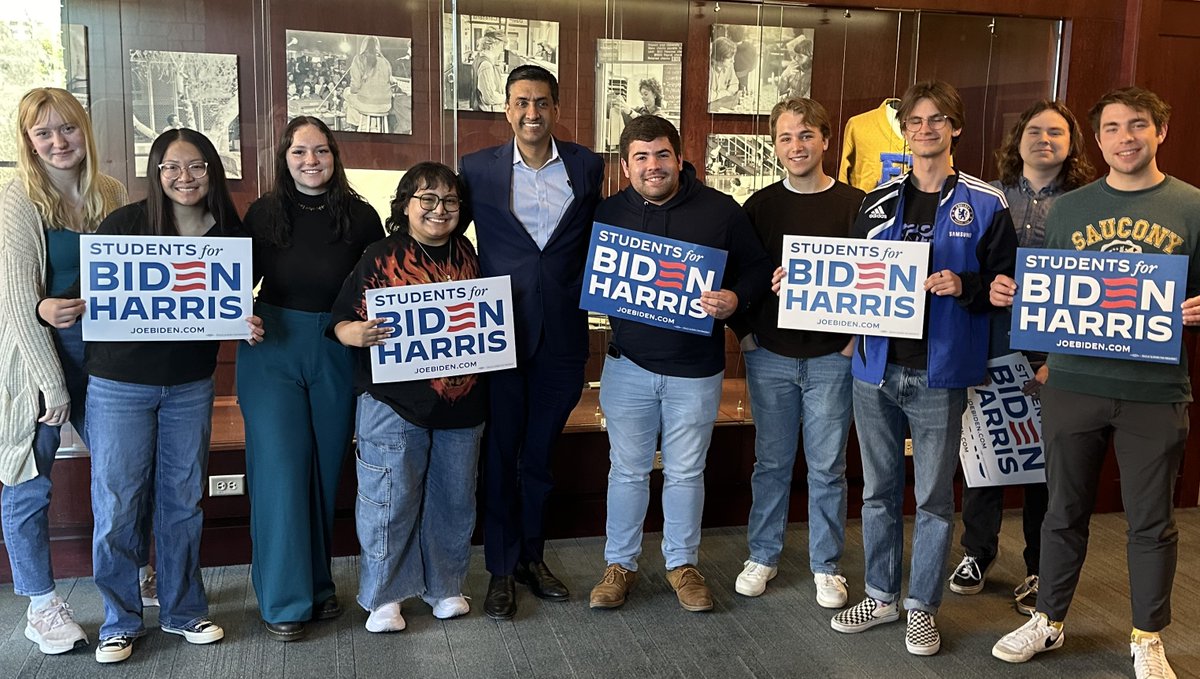Congressman Ro Khanna from California met with students at UW-Eau Claire to discuss voting issues and the humanitarian crisis in Gaza. Khanna is supporting the Biden-Harris Campaign and is meeting students from around the nation.
Khanna has spoken at dozens of high schools and college campuses and chose UW-Eau Claire because of its “progressive” nature.
“We need a big turnout and I love student energy, student leadership [and] student activism. We need to organize and organize early and to get young people engaged,” Khanna said.
The Biden-Harris campaign has been mobilizing on college campuses, as political experts believe the youth vote will be among the most significant in this election. Due to Wisconsin maintaining its swing-state status, it puts college campuses across the state at the front of the election.
“This election is going to come down to young people turning out and I hope we get a big turnout out of the Eau Claire campus,” Khanna said.
Matthew Lehner, UW-Eau Claire College Democrats chapter president, spoke to Khanna about how the importance of Wisconsin in the election, as Biden narrowly won the state in 2020 with 20,600 votes.
“The fact that you have a California congressman who is paying so much attention to our little state and our little town here in Eau Claire, I think, really underscores the importance of Wisconsin, but also really the importance of Eau Claire in this election,” Lehner said.
“Democrats understand that Wisconsin is a very important state. If you look at it since Obama. But whoever [has] won Wisconsin has won the entire election,” said Zach Britt, a Wisconsin Democrats field organizer. “Democrats understand that Wisconsin is very important. It’s very important to win this election.”
Students had the opportunity to discuss specific issues on Wednesday, April 24 in the Alumni Room of Davies Student Center. The Humanitarian Crisis in Gaza was among the top items in this discussion.
This discussion is significant as protests on large college campuses have become a nationwide subject, with protests and encampments forming on both the UW-Madison and University of Minnesota Twin Cities campuses.
Students discussed how it’s atypical for political figures of this scale to be on campus at this time of year. Republican Scott Walker spoke on April 10 but was not here to support a specific cause, and did not discuss the election.
The last major political candidate on campus was Bernie Sanders in the fall of 2022. Students spoke of hope for large visitors like Sanders in the upcoming fall, but no details were given on who might arrive on campus.
Fátima Chávez is an activist who created a grassroots organization, Eau Claire Vote Blue which supports progressive candidates.
“It is important to bring candidates throughout the whole season because it’s to help us to gain awareness and just to tell everyone that is able to vote, to vote because this election is so crucial,” Chávez said.
There are no current plans for Republican campaign speakers on campus, but former president Donald Trump will visit Waukesha on Wednesday.
Leick can be reached at [email protected].








